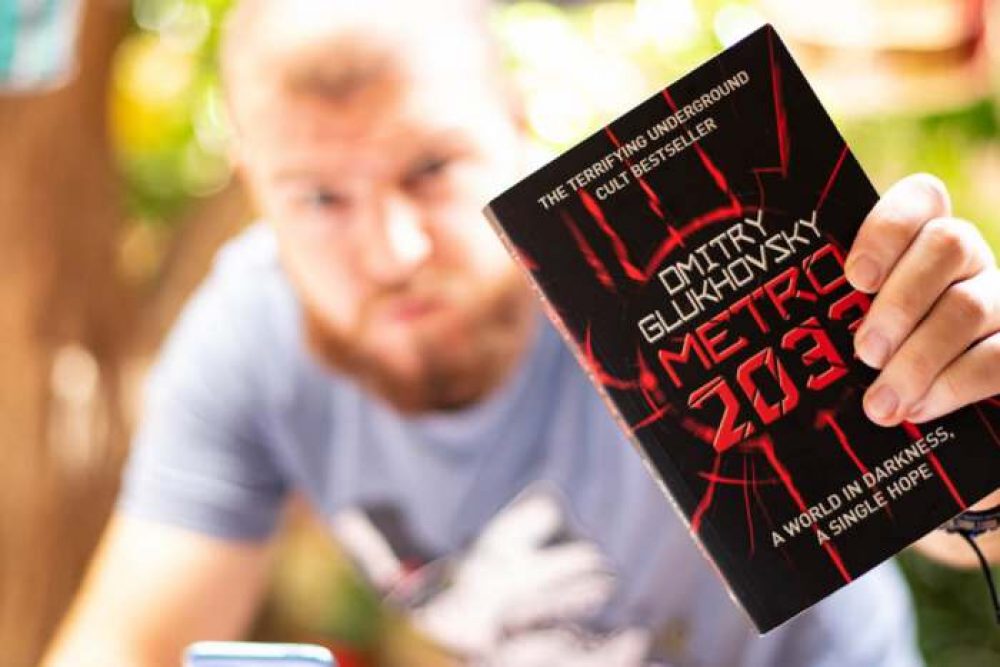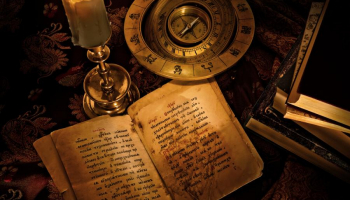
First published in 2005 in Russia, Dmitry Glukhovsky’s super-hit made the Russian author a household name and is often cited as one of the best post-apocalyptic books of all time. More than that, three best-selling video games were based on the book, namely Metro: Exodus, Metro Last Light, and namesake, Metro 2033. The book has sold more than 5 million copies across the world in multiple languages. Metro 2033 is not just a cult-favorite; it’s justifiably celebrated as one of the best science fiction novels ever written, partly thanks to its imaginative plot and innovative setting.
It’s the year 2033. Blasted by a nuclear war, the world has degenerated into wasteland jam-packed with dilapidated buildings, if not rubble. Nearly the entire human race has been wiped from the face of the planet. Worse still, almost half of the cities hit by the nuclear blast have become toxic and uninhabitable by radiation.
Beyond the city limits, according to eyewitness reports, you’ll find miles and miles of fragmented dead forests and endless expanse of barren deserts. The last of the remaining civilization now belongs to a distant memory, part of legend and myth. Survivors can only reminisce about the human greatness of the bygone era.
The world as we know it today is gone. The rusted railroads have fallen into disrepair and they lead to nowhere. It’s been well over two decades since the last airplane taxied off the tarmac. The airwaves have gone silent, with only echoes remaining in the space where formerly the frequencies were teeming with news from London, New York, Shanghai, Tokyo, etc.
Man’s rein on the planet is over. They have handed over the leadership of the planet to new creatures. Born out of nuclear mutations, the new life-forms are better built for the radiation-ravaged world.
There are only dozens of thousands of survivors who live inside the Moscow Metro, the largest air-raid dome ever constructed. The bomb shelter is human’s last resort and only chance for survival against the oppressive leadership of the new life-forms. Interestingly, every station on the Moscow Metro is now a mini-state, with each faction uniting around water resources, religion, and ideology, amongst other divisive issues.
This is no world for any sober human. It’s a world without hope, plans, dreams, or tomorrow. Feelings and emotions have paved the way for animal instinct, the survival instinct. In this dog-eat-dog society, people must survive at all costs.
The northernmost station along the metro subway is called VDNKh. Once it was one of the most exquisite stations on the Metro and is still considered the safest and most secure of the mini-statelets. However, a new and horrible threat has emerged, threatening the safety and survival of VDNKh, Moscow Metro, and perhaps the entire humanity.
It’s upon one young citizen of VDNKh named Artyon to go deep into the core of the Metro in search of the iconic Polis and so-called “Dark Ones” so that he can alert the rest of the inhabitants to the impending danger. And of course, get the backup of the whole Metro. This isn’t a quest for the faint-hearted or the weak-witted. The future of everyone rests upon this young trooper, but is he up to the challenge?
Metro 2033 was a mega-hit in Dmitry Glukhovsky’s native Russia even before it was published, and that’s no accident. The author started posting a few chapters of the book online, soon amassing hordes of followers and fans who couldn’t wait to read the next chapter. A book deal soon came along and with it computer game adaptation and sequels.
The premise is solid – it’s essentially modern-day Lemuel Gulliver’s Travels into Several Remote Nations of the World. However, in Glukhovsky’s book, he provides spine-chilling commentary on the socio-political and economic landscapes. Moscow Metro has all of the usual suspects – trading systems, the Communists, radical Christians, and more in between. They are also subject to sharp scrutiny and criticism.
The book is pleasantly packed with imaginative details of an often harsh, defeated, and sometimes masculine life devoid of women, domestic comforts, or even beauty. Although some of the writing vigor, brilliance, and fascination poured by Glukhovsky into the book was lost in translation, Metro 2033 is still a powerful novel, a great read for any fan of fantasy, horror, and science fiction.
If you find yourself yearning for more after finishing this book, don’t hesitate to check out other books by Glukhovsky, including Metro 2034, Metro 2035, Futu.re.









